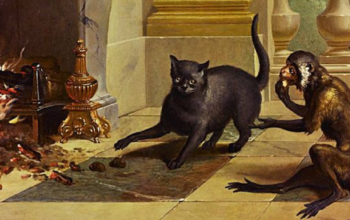This can only be bad news for the Clintons. Newsweek proves it is in the tank for OBama. What a lame attempt by the “Main Stream Media” to sway mind numbed Liberals!
It has been a rarity in modern political life: a wide-open race for the nomination of both parties. But whatever happens from here on out, this campaign will always be remembered for the emergence of the first serious woman candidate for president: Barack Obama.
Obama is a female candidate for president in the same way that Bill Clinton was the first black president.
It was Toni Morrison who first had the insight. In a 1988 essay in the New Yorker, the Nobel Prize-winning author described Bill Clinton as “the first black president,” commenting on his saxophone playing and his displaying “almost every trope of blackness.”
Obama doesn’t play the sax. But he is pushing against conventional—and political party nominating convention—wisdom in five important ways, with approaches that are usually thought of as qualities and values that women bring to organizational life: a commitment to inclusiveness in problem solving, deep optimism, modesty about knowing all the answers, the courage to deliver uncomfortable news, not taking on all the work alone, and a willingness to air dirty linen. Hillary Clinton, on the other hand, is taking a more traditional (and male?) authoritarian approach.
Obama is advocating conversation and collaboration—talking with everybody, including those with whom he has significant disagreements. Several of the so-called “gaffes” targeted by Clinton and GOP front runner John McCain have been about Obama’s willingness to talk with people we aren’t supposed to like, such as various factions in the Middle East.
Clinton’s campaign, on the other hand, is centered on the idea that she is the experienced realist. She understands the rules in this man’s game of politics and governing, knows how to play by them and win, and can take the heat that inevitably comes with entering the fray. Obama’s argument is that he understands the rules and knows how to play by them—but that he wants to change those rules, because they embody values with which he does not agree. He manages to hold his realism and his optimism in constructive tension together, even though it opens him up to the charge that he is naive.
Clinton proposes policy solutions to every problem. She has the answers, fulfilling our expectations of an aspiring authority figure and the brightest person in the class. Obama often proposes process plans, without specific policy solutions, such as bringing together all the interested parties on global warming and having them hash out their differences in a transparent forum, taking the risk that what they come up with will not be his preferred outcome.
Obama is willing to acknowledge his indiscretions and not apologize for them. His drug use was part of his journey. He returned the campaign contributions of a former friend with an unsavory past. Clinton seems to think that admitting mistakes or acknowledging indiscretions—having second thoughts—is a sign of weakness.
Clinton’s message is that she will drive her solutions to enactment and implementation despite the forces of evil lurking everywhere. As a woman, Clinton feels constrained to portray herself as tough, competitive, willing to take on the bad guys. She has to be more male than men, in the same way that women are reluctant to leave the office early to pick up their children at day care because they fear they will not be thought of as serious about their careers, while men are applauded for doing so.
Obama can raise possibilities that are off the table for Clinton. She needs to tell us that she can solve our problems. Obama seems comfortable in what we think of as a female role: not overpromising what he can accomplish, and telling us that the work of change is ours as much as it is his. As recently as his speech in Wisconsin right after the Potomac primaries, Obama told his listeners that any real change was going to require difficult work on their part.
Elections aren’t about leadership. They are about winning, and winning requires pandering: telling people what they want to hear. Leadership is often about giving people news they don’t want to hear. My favorite definition of leadership is disappointing your own people at the rate that they can absorb.
While Obama has tried to combine optimism and realism, John McCain is the only candidate in the race who has consistently delivered messages that his constituents did not want to hear. He is the only one who has regularly gone in front of hostile crowds and been willing to stand and defend positions—on immigration, the Iraqi war, ethanol, restoring jobs in Michigan, and campaign finance—that were certain to offend people whose votes he was trying to secure. Despite the gender-bending styles displayed by Obama and Clinton, McCain’s manner of exercising leadership is an androgynous and rare activity.



